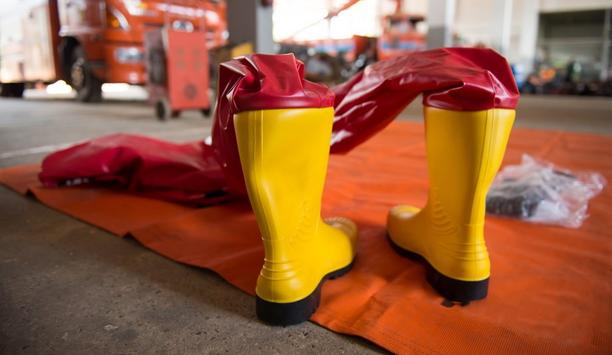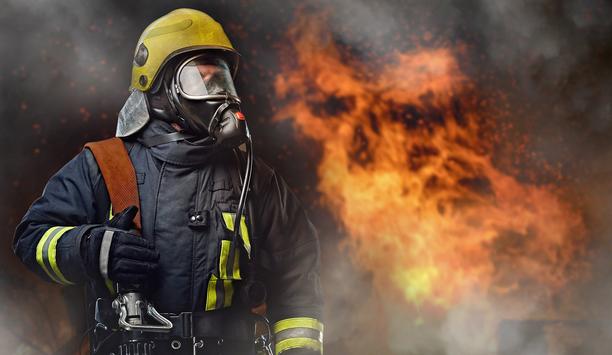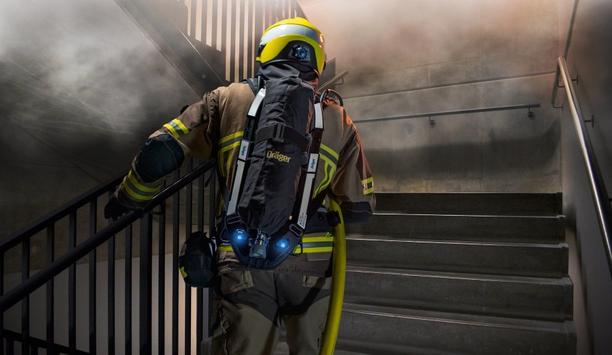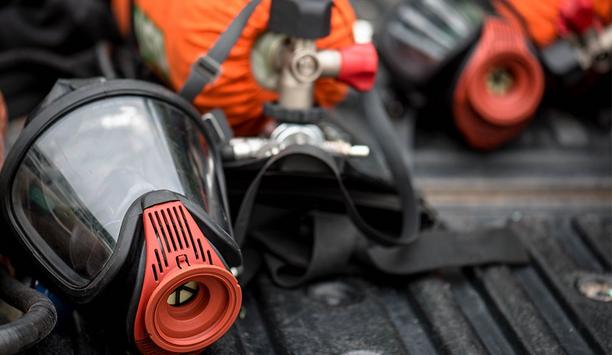FIREX International 2022 was bustling with visitors, glad to be back networking, demonstrating new technologies, and sharing ideas.
Education was high on the agenda across the three days at London’s Excel, with various live seminars and panel discussion sessions held throughout the show.
Fire Education
Seminars covered topics ranging from social sustainability to safety leadership, while the Fire Protection Association (FPA) InfoZone hosted sessions on sprinklers in schools, the safety implications of electronic vehicle fires, and the insurability of timber buildings.

With lots of new and established products on display at the event, it was clear that the biggest changes in this sector are being driven by the impact of the COVID-19 pandemic, and, inevitably, the continued fall-out from the tragic Grenfell fire of 2017 in London.
IP-based public alarm and voice address
Coronavirus safety measures and concerns have driven advances in remote monitoring of fire detection systems. IP-based public alarm and voice address (PA/VA) technology is enabling improved remote communication channels.
Ian Bridgewater, Director, Technical Sales Manager at TOA Corporation (UK) Ltd, explained to TheBigRedGuide.com how developments in this area can be utilized, “The use of IP in PA/VA is changing the way installers and maintenance engineers can communicate with systems.”

Remote monitoring and maintenance
He continued, “Connecting via industrial standard network protocols allows for remote communication.”
“Working with specialist software developers has expanded this giving greater flexibility to monitor and maintain systems remotely from a central hub. IP allows for integration with network audio communication systems such as SIP and VMS (Video Management Systems).”
Grenfell disaster
The fire of the Grenfell building in London has brought changes to testing and regulation in the fire prevention
The horrific fire that took hold of the Grenfell building in London in 2017, leading to 71 deaths, has brought about dramatic changes to testing and regulation in the fire prevention and suppression industries, as well as to the construction and building design.
Indeed, these lessons learned at a high cost are being shared outside the UK and having an effect around the world.
Impact of fire
“It was the sixth major building fire since 1973, yet it's the only one that's created any change, and now those ripple effects are starting to be felt outside the UK, too,” Ed Peltor, Managing Director at Tenmat Ltd, said.
“The recladding of the UK building stock (now extended to buildings over 11m, not just over 18m) that does not comply will take at least ten years. Despite Government funding and the Building Safety Bill, only a fraction has been rectified, costly waking watches remain in place.”
A resilient industry
It is encouraging that terrible events like the Grenfell fire and the COVID-19 pandemic are at least having a positive impact on innovation in fire prevention and resulting in more efficient systems and improved fire safety for many.

Alongside these technological advances, FIREX 2022 also featured the Engineers of Tomorrow competition and live installer dedicated training, emphasizing the event’s focus on continued learning and a positive future for the active and passive fire sectors.







